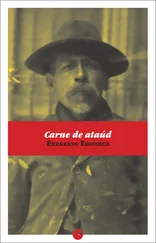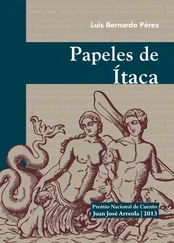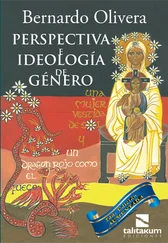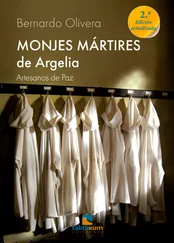Bernardo Atxaga - Obabakoak
Здесь есть возможность читать онлайн «Bernardo Atxaga - Obabakoak» весь текст электронной книги совершенно бесплатно (целиком полную версию без сокращений). В некоторых случаях можно слушать аудио, скачать через торрент в формате fb2 и присутствует краткое содержание. Год выпуска: 2010, Издательство: Graywolf Press, Жанр: Современная проза, на английском языке. Описание произведения, (предисловие) а так же отзывы посетителей доступны на портале библиотеки ЛибКат.
- Название:Obabakoak
- Автор:
- Издательство:Graywolf Press
- Жанр:
- Год:2010
- ISBN:нет данных
- Рейтинг книги:3 / 5. Голосов: 1
-
Избранное:Добавить в избранное
- Отзывы:
-
Ваша оценка:
- 60
- 1
- 2
- 3
- 4
- 5
Obabakoak: краткое содержание, описание и аннотация
Предлагаем к чтению аннотацию, описание, краткое содержание или предисловие (зависит от того, что написал сам автор книги «Obabakoak»). Если вы не нашли необходимую информацию о книге — напишите в комментариях, мы постараемся отыскать её.
Obabakoak
The Observer
Obabakoak — читать онлайн бесплатно полную книгу (весь текст) целиком
Ниже представлен текст книги, разбитый по страницам. Система сохранения места последней прочитанной страницы, позволяет с удобством читать онлайн бесплатно книгу «Obabakoak», без необходимости каждый раз заново искать на чём Вы остановились. Поставьте закладку, и сможете в любой момент перейти на страницу, на которой закончили чтение.
Интервал:
Закладка:
One afternoon, it must have been on my third day there, I heard a noise other than the applause of falling water. It was the sound of music, of a strident song issuing from a radio in a house not very far from mine.
“Someone’s alive out there,” I thought, going out into the street in search of the source of that one sign of life. Then I noticed a small house with all its windows lit tucked away in the upper part of the village. That was where the music was coming from. A record player — not a radio — was playing at full blast and a series of voices, mostly female, were singing along as if to outdo it in volume. There was no doubt about it. There were people in Villamediana, real live people.
From then on the route of my daily walks changed. I circled the house, again and again, morning and evening. And there was always music playing, the windows were always lit. Such evidence of joy was in itself astonishing but it was proof too that not everyone’s spirit was overgrown with ferns and mosses. No, mood wasn’t necessarily dependent on climate.
Sometime later, when I’d been in the village for over a week, the mist lifted. The falls of applauding water ceased, the gutters began to dry up, the drop of water which, ever since my arrival, had hung from the clothesline on my balcony — in my letters I’d described it as resembling a “glass pea”—fell to earth for good. There were patches of blue in the sky, the plants stood tall again, and the square filled up with old people and children.
“It seems the worst is over,” I wrote to my friends.
My life flowed now along normal channels. I found out where people gathered to play cards or to drink and that was where I went to meet and talk a little with my new neighbors. Nonetheless, my curiosity remained centered on the house with the record player and the lighted windows. The chance nature of that first contact had forged a link between it and me. Who lived there? What lay behind that display of happiness? But I had decided to be discreet and to avoid asking any direct questions. I had to be patient and wait for someone to tell me.
I didn’t have to wait long and the answer was handed to me, so to speak, by one of the shopkeepers in Villamediana. She was a plump woman and friendly in the way all shopkeepers are when a new customer presents himself, and she was very interested in my reasons for being in the village. She couldn’t get it into her head that I had come simply to “be there.”
“I don’t believe it. You’re hiding something,” she said to me one day.
By then, after four or five visits, the ice was broken and we talked to each other with a certain intimacy.
“I wish I was, but I’m not. I’m here because I like the place,” I replied.
“Forgive my saying so, but I find that extremely hard to believe. There isn’t a sadder, more boring village to be found.”
“Well, I can’t see what’s sad about it,” I lied. “On the contrary, it seems to me that people here live very happily.”
She smiled mockingly, making it clear that she still did not believe me, that thank you for the compliment but no, she wasn’t deceived. I hurriedly explained about the house in which I’d observed that zest for life.
“Oh, you mean the shepherds! That’s the shepherds’ house!” she said, laughing and adding, with the expression of one unwilling to reveal everything she knew: “I know it takes all sorts, but those shepherds, how can I put it… they’d much rather spend their money on treats for their children than on buying them books. Look,” she said pointing out at the square where some children were playing, “they don’t even send them to school. At this hour theirs are the only children you’ll find still playing out in the streets.”
So it was the shepherds’ house. And more by her look than by anything she said, the shopkeeper explained to me how “odd” they were, how different from the rest of the community. That attitude was new to me, surprising.
Before I’d even left the shop, I’d already decided to find out for myself in what way the shepherds were different. After all I had nothing in particular to do and the good mood the change in the weather had brought about in my inner world of mosses and ferns urged me on to action. Yes, I would attempt to discover the shepherds’ secret. If I succeeded, it was quite likely that anything I learned would prove to be some universally applicable truth, not one restricted to the narrow world of Villamediana. Because in all times and in all places, indeed since time immemorial, there had been shepherds. And it was with such thoughts in my head that I turned my full attention to the goings on in the happiest house in the village.
I soon came to realize that the peculiarity of its occupants was not restricted to their love of music or to the low esteem in which they held schooling. What was also noticeable — in a half-deserted village like Villamediana, how could you not notice? — was their sheer abundance, their quantity, and the fact that their house was always crammed with people, not empty or half-empty like the majority of the houses in the village. Every time I passed the front door, I’d see five or six children playing there and there’d always be one I hadn’t spotted before. Some were fair, some dark, and there was even the occasional redhead, and they were always well turned out. And it was rather the same with the adults, with them too it was difficult to keep track. One day I’d look up at the balcony and see two young women, the next day a third woman with an older man, rather short in stature, the day after that a dark, well-built man leaning on the balustrade smoking.
One evening, when I was with my neighbor, Onofre, I saw a white-haired old man going into the house.
“Does he live there too?” I asked, feigning amazement. The fact was the house seemed to be of limitless capacity.
“It’s one of the shepherdess’s husbands,” Onofre said. There was a malicious undertone to his words.
“One of her husbands? How many has she got?” This time my amazement was genuine.
“She’s got two. The man we saw just now and another shorter man. But the short one’s the boss; in fact, he’s master of the whole house.”
I knew who he meant when he spoke of the master of the house, not only because I’d seen him standing on the balcony but also because I recognized him from the bar. He was always trying to get me to make up a pair for cards. And suddenly it struck me as odd that the shepherd should lack a partner to play cards with, especially in Villamediana, a village where there was no other entertainment. The word exclusion floated into my mind.
My neighbor was smiling ever more maliciously.
“As I say, he’s the boss. Everyone obeys him.”
“And how many people live in the house all together?” I asked.
“There’s no way of knowing. It depends.”
“What do you mean, it depends?”
“I mean it depends how many are passing through.” Onofre was laughing quite openly now. Fancy a man like myself being unable to solve the enigma he set before me.
But it was not in the least difficult to understand what he was trying to tell me. Partly because his jokes tended to be full of sexual innuendo anyway, but also because of something he’d said earlier, which I remembered very clearly, something about the women of easy virtue who lived in Villamediana.
According to his fellow villagers, my neighbor was a “stirrer,” a “mischief-maker,” and a “tattletale,” and nothing he said was to be taken seriously. However, as I subsequently found out, almost everyone in the village was in agreement with him as far as the family of shepherds was concerned. The mere mention of them provoked gales of laughter.
Читать дальшеИнтервал:
Закладка:
Похожие книги на «Obabakoak»
Представляем Вашему вниманию похожие книги на «Obabakoak» списком для выбора. Мы отобрали схожую по названию и смыслу литературу в надежде предоставить читателям больше вариантов отыскать новые, интересные, ещё непрочитанные произведения.
Обсуждение, отзывы о книге «Obabakoak» и просто собственные мнения читателей. Оставьте ваши комментарии, напишите, что Вы думаете о произведении, его смысле или главных героях. Укажите что конкретно понравилось, а что нет, и почему Вы так считаете.











